Inflammatory acne is a severe type of acne that causes painful swelling and redness, often containing pus inside. If not treated properly, inflammatory acne can lead to dark spots and scarring. Let HBIO Clinic help you understand the causes of inflammatory acne and how to effectively treat swollen acne at home.
Signs of Inflammatory Acne
Inflammatory acne, also known as cystic acne, is a serious form of acne that occurs when pores become clogged with excess sebum and dead skin cells, creating a favorable environment for the bacteria Propionibacterium acnes (P. acnes) to grow and cause inflammation.
According to statistics from the American Academy of Dermatology (AAD), inflammatory acne is one of the most common acne types, accounting for approximately 85% of acne cases.
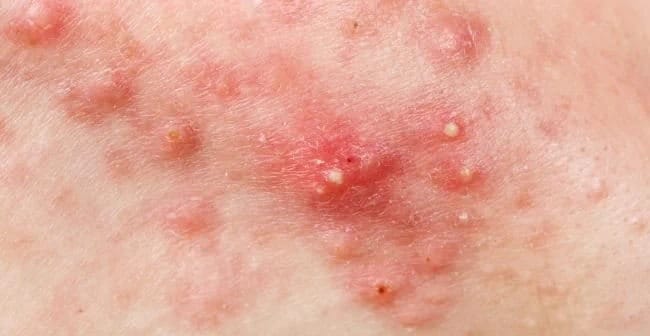
How to recognize inflammatory acne on the skin:
- Red, swollen areas: The skin around acne lesions often appears swollen and red due to the body’s inflammatory response.
- Pain or tenderness: Inflamed acne usually causes pain or discomfort when touched, affecting daily activities.
- Presence of pus: The acne head often contains white or yellow pus, formed by the accumulation of white blood cells and bacteria.
- Larger size: Compared to other types of acne, inflammatory pimples are larger, ranging from a few millimeters to several centimeters.
- Risk of scarring: Without proper care and treatment, inflammatory acne can lead to scars such as dark spots, atrophic (depressed) scars, or hypertrophic (raised) scars, negatively impacting skin aesthetics.
- Accompanying symptoms: Sometimes inflammatory acne is accompanied by itching, burning sensation, heat in the affected area, and even mild fever.
These are some symptoms that indicate the formation of inflammatory acne. Early recognition of these signs will help you avoid damaging the sensitive skin area and allow for proper treatment.
Click here: TOP 10 Nguyên nhân gây mụn phổ biến mà bạn nên biết
Causes of Inflammatory Acne
Inflamed, red acne results from skin inflammation, often caused by blocked small pores known as microcomedones. Major types of inflammatory acne include pustules, nodules, cysts, and abscesses.
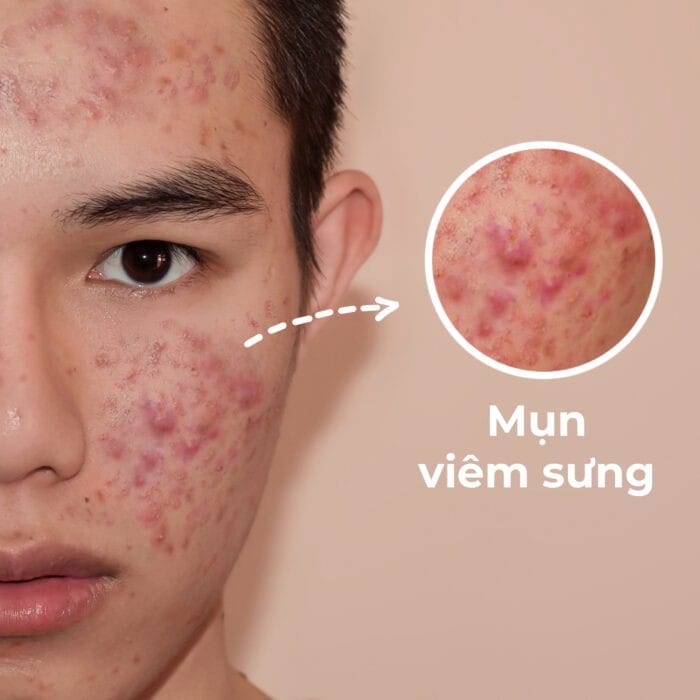
The causes of red, swollen inflammatory acne usually stem from the following factors:
- Improper skin hygiene: Failing to cleanse the skin properly, especially with hidden acne, creates an environment for bacterial invasion and inflammation.
- Touching or squeezing pimples: This transfers bacteria from hands to the skin, increasing infection risk and spreading inflammatory acne.
- Hormonal changes: Hormonal fluctuations during puberty, pregnancy, sleep deprivation, or severe stress can overactivate sebaceous glands, causing inflammation.
- Unhealthy lifestyle habits: Frequent late nights, consumption of sugary, oily, spicy foods, and stimulants like alcohol worsen inflammatory acne.
The main cause of acne comes from unhealthy lifestyle habits. So, are there any effective and safe ways to treat inflammatory acne at home?
Effective Ways to Treat Inflammatory Acne
The effective way to treat inflammatory acne is by using active ingredients that target inflamed acne. In addition, combining this with scientific skincare and a healthy lifestyle will help improve the condition of inflammatory acne.
How to Treat Mild Inflammatory Acne at Home
If you have mild inflammatory acne with only a few pimples and they do not appear frequently, you can apply the following natural methods to care for and improve your skin. Note that these methods should only be used when acne is mild (just a few pimples), performed about 2-3 times per week. You should also monitor your skin throughout the self-treatment process:
- Cold Compress
Use a cold pack or ice wrapped in a cloth to apply on the inflamed acne area. This method helps reduce swelling and soothes the inflamed skin.
- Using Aloe Vera
Aloe vera has anti-inflammatory properties, moisturizes, and gently cleanses the skin. Natural aloe vera gel not only helps eliminate bacteria on the skin but also provides a cooling sensation that supports skin recovery.
- Using Turmeric
Turmeric is a familiar ingredient with strong anti-inflammatory and antibacterial effects. It helps reduce acne inflammation, stimulates cell regeneration, accelerates wound healing, and prevents scarring.
- Applying Coconut Oil
Coconut oil has anti-inflammatory and antibacterial properties while softening the skin. However, coconut oil is more suitable for dry skin and should be avoided on oily skin to prevent clogged pores.
- Applying Rice Bran Mask
Rice bran effectively cleanses the skin while nourishing and brightening from deep within. Using rice bran as a mask can significantly improve acne conditions.
- Pure Honey
Honey has anti-inflammatory, brightening, and anti-aging properties. You can apply honey on acne areas to help reduce redness and nourish the skin.
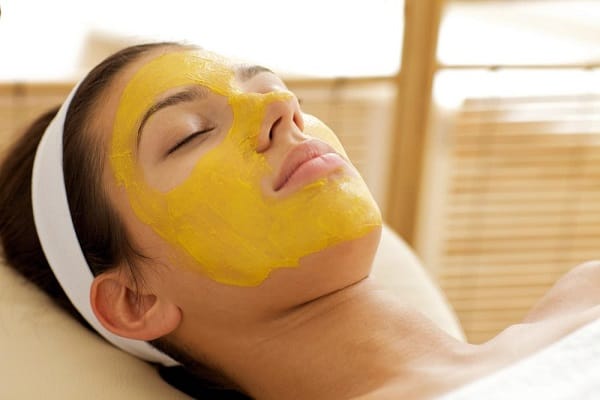
Skincare for Inflamed Acne
Proper skincare is very important, especially for acne-prone skin. Incorrect care can worsen acne and make treatment more difficult.
Daily, you should wash your face twice with a gentle cleanser that is soap-free and fragrance-free. For those who wear makeup regularly, thorough makeup removal at night is essential to prevent clogged pores. Avoid harsh rubbing, which can damage the skin and worsen inflammatory acne.
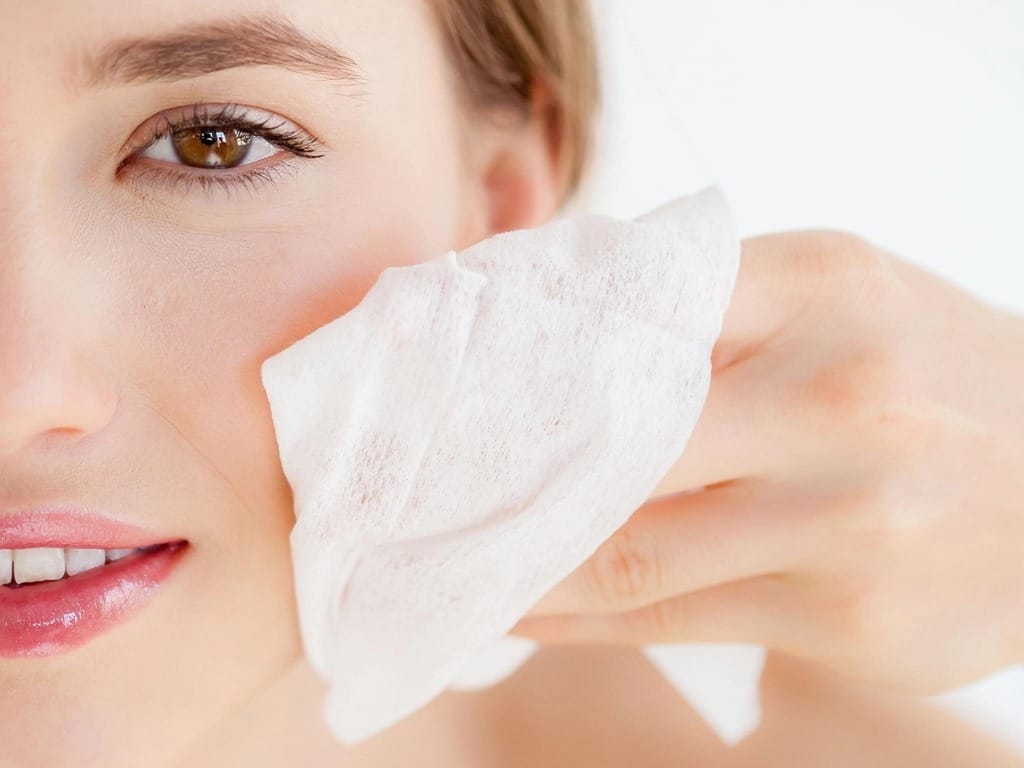
After cleansing, applying an oil-free moisturizer is a crucial step to provide hydration without clogging pores. You should prioritize products containing ingredients such as hyaluronic acid, glycerin, or ceramides, which deeply moisturize and soothe the skin.
Moreover, UV rays can increase inflammation and stimulate melanin production, causing dark spots after acne. Therefore, applying sunscreen daily with at least SPF 30 is necessary, even on cloudy days. Also, try to avoid sun exposure between 10 a.m. and 4 p.m. to minimize sun damage.
Click here: Cách phân biệt các loại mụn trên mặt và nguyên nhân gây ra
Lifestyle Changes
Your daily lifestyle and habits significantly affect your skin, especially your diet. So, what habits should you develop for healthy, glowing skin?
- Build a healthy diet: A balanced diet rich in green vegetables, fruits, and whole grains can improve acne. Limit spicy, oily, sugary foods, and dairy products—these can increase clogged pores and trigger acne.
- Drink enough water: Drinking 2-3 liters of water daily helps detoxify the body, keep skin hydrated, and reduce clogged pores.
- Get enough sleep: Sleeping 7-8 hours a night helps the body recover, regenerate energy, and reduce stress, which can worsen acne.
- Reduce stress: Prolonged stress increases cortisol hormone secretion, stimulating sebaceous glands and causing acne. Try relaxation methods like exercise, yoga, or meditation to maintain a calm mind and reduce acne risk.
- Avoid touching your face or popping pimples
This can damage the skin, spread bacteria, and worsen acne. Instead, seek professional dermatological treatment for safe acne removal.

To eliminate severe red and swollen inflammatory acne, try the following active ingredients for treating inflammatory acne.
Active Ingredients for Treating Inflammatory Acne
Besides proper skincare, treating inflammatory acne requires correct methods and following dermatologists’ advice. Some topical medications such as benzoyl peroxide (antibacterial and keratolytic), retinoids, and salicylic acid help kill bacteria, reduce inflammation, cleanse pores, and prevent new acne.
However, for safety and effectiveness, consult your doctor before use.
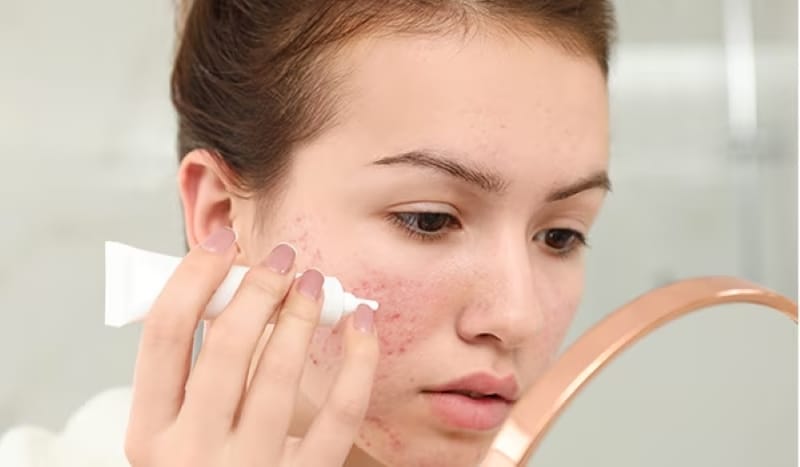
Some oral medications can also treat inflammatory acne, such as cycline antibiotics (Doxycycline/Tetracycline); Dapsone (an anti-infective drug), birth control pills, or spironolactone, among others.
The above are essential points you need to know about treating inflamed, swollen acne. If your acne is severe and does not improve with home care, you should visit a dermatologist promptly for timely treatment.
If you have acne scars and inflammation that affect your appearance, visit HBIO Clinic for professional skin care and beauty treatments to improve acne scars and restore your confidence.
Click here: Điều trị tăng sắc tố da tại HBIO Clinic
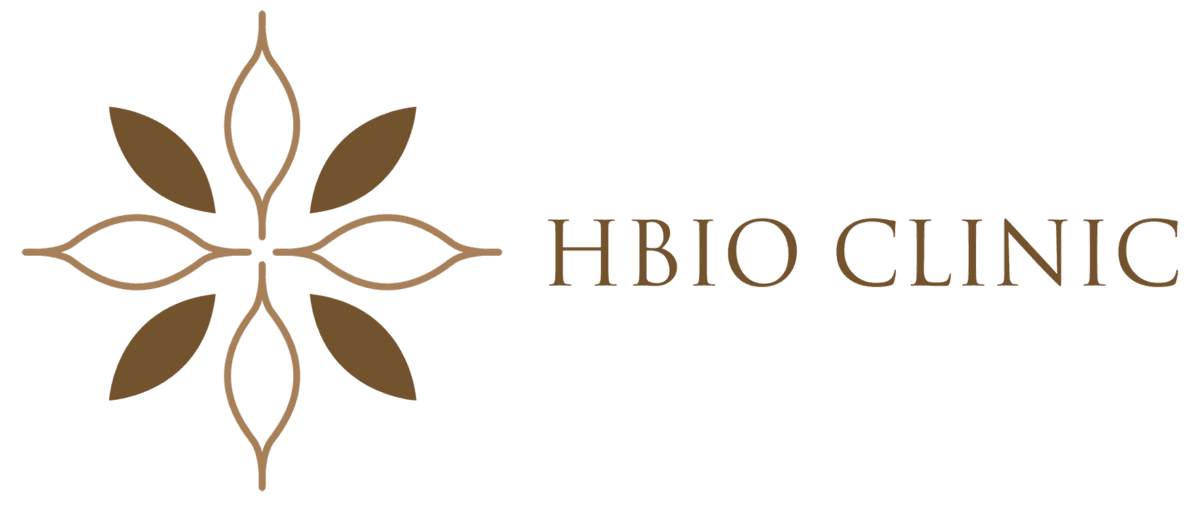

 Tiếng Việt
Tiếng Việt
Dr. Thai Nguyen – Founder and Medical Director of HBIO Clinic. As an expert in aesthetic dermatology, she regularly shares in-depth knowledge and practical experience to provide valuable and insightful information for those seeking better skin health.